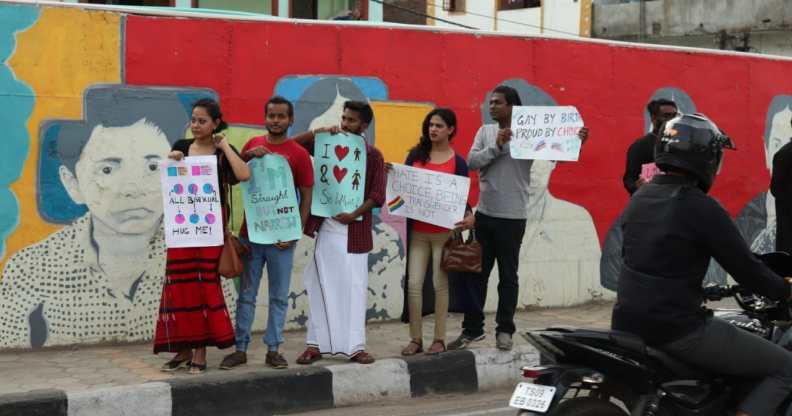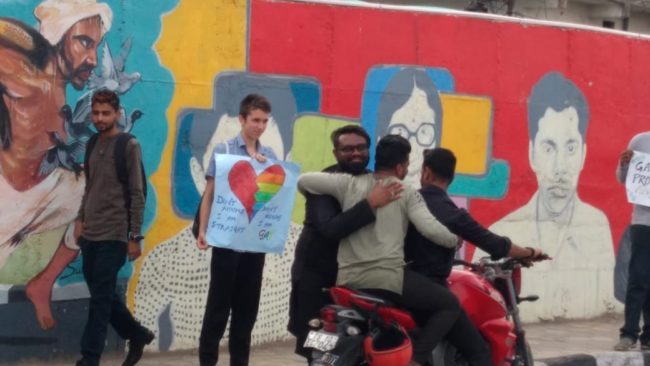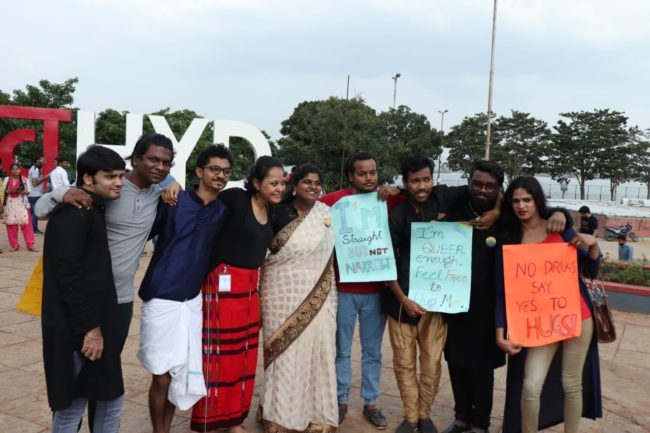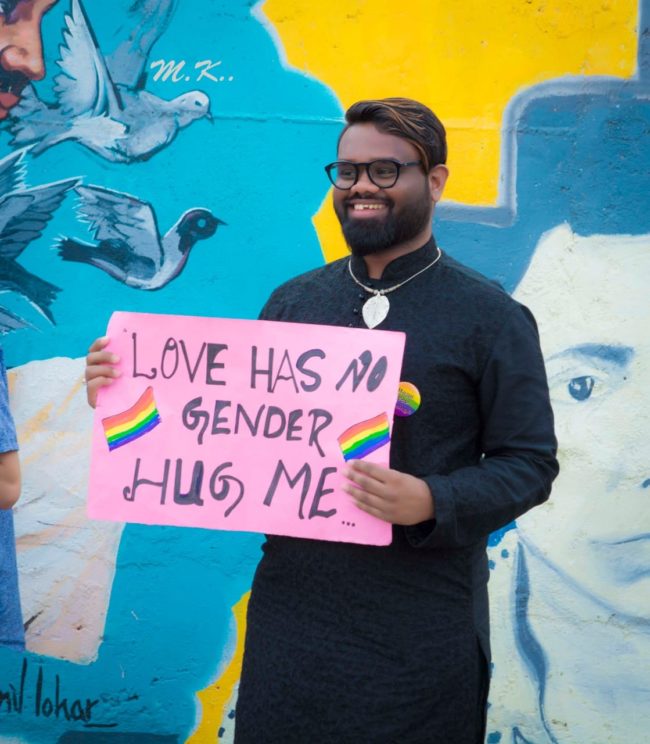India LGBT group offer free ‘queer hugs’ following decriminalisation of gay sex

An LGBT+ group in India is holding ‘queer hugs’ events to ask the local community if they will accept them after gay sex was decriminalised.
Around 50 members of The Mobbera Foundation held placards which had slogans such as “yes, I’m bisexual will you hug me?” and “If you’re ok with my sexuality, will you hug me? ”
The queer and transgender group operates from the city of Hyderabad which is the capital of southern India’s Telangana state.
Anil Kohli, a senior associate at Amazon and the Vice President of the LGBT+ group, spoke to PinkNews about the scheme.
“Our primary focus for our event for asking hugs was asking the question ‘will you accept me?’,” Kohli said, “we were asking ‘the law has accepted us, will you’?” he continued.
The event was arranged prior to the Supreme Court decision to overturn the ban on consensual same-sex relations, on September 6, which was previously punishable by a sentence up to life in prison.
Kohli, who identifies as a gay man, said the group runs the event twice a year for creating awareness within the local community, but prior to the decriminalisation they had problems with the police.

The Mobbera Foundation give out free hugs to promote LGBT+ acceptance. (Credit: The Mobbera Foundation)
“Two years back we were asked to stop the event by police – but fortunately now [after the verdict] it’s changed, and the police are friendly,” he told PinkNews.
The organiser said they received a lot of support from the local community and felt “hugs with love” from strangers on the street.
Kohli also said the local Telangana police offered their support and protection during the event in case of any problems, but no incidents occurred.

The Mobbera Foundation post with placards at its event to promote LGBT+ acceptance in India. (Credit: The Mobbera Foundation)
The group described how it made them feel in a statement on its Facebook page. “Millions and millions of years would still not give us half enough time to describe that tiny instant of all eternity when you put your arms around us and we put our arms around you,” the post read.
“It was an intense embrace, no awkwardness, no holding back, the kind of hug two people can only achieve after long intimacy, but anyone can give in an instant to a stranger,” it continued.
“Hug the differences out. Accept us as we are. We are no different. We are perfect the way we are,” the post added.
Kohli told PinkNews that he was skeptical of being too optimistic about the future for LGBT people in India, but that on a positive note lots of people are “coming out in the wake of the decriminalisation.”
The activist said in his opinion the decision hasn’t 100% changed the opinion of local people, but that the verdict has made a significant impact.

The Mobbera Foundation’s Vice President Anil Kohli spoke to PinkNews about the event. (Credit: The Mobbera Foundation)
With the exception of the years between 2009 and 2013, gay sex has been illegal in India since the introduction of Section 377 in 1861.
The law, made under British colonial rule, banned sexual activity “against the order of nature,” including with another man or woman.
The controversial legislation has been widely used to clamp down on the LGBT+ community in India, which is home to 1.3 billion people.
In 2009, the High Court in Delhi ruled that the 1861 law violated human rights, and legalised homosexual sex between consenting adults.
But just four years later, the Supreme Court reversed the High Court ruling, making gay sex illegal again and outraging LGBT+ rights campaigners across the world.

